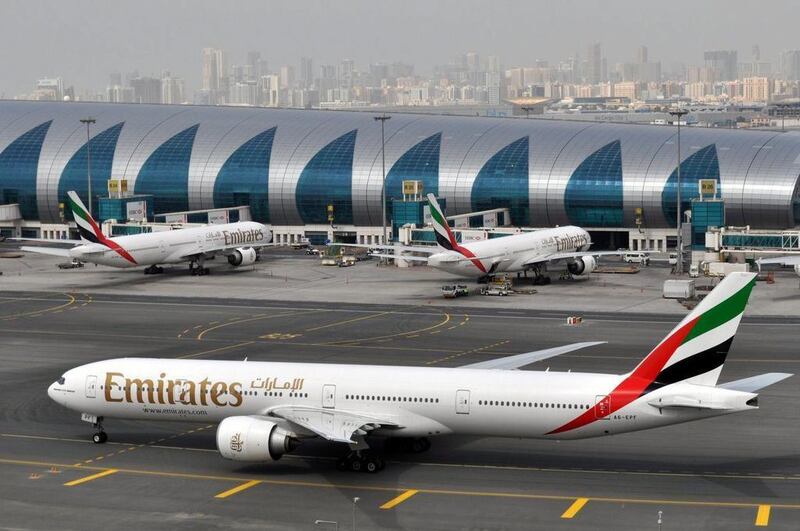The Investment Corporation of Dubai (ICD), the emirate's sovereign wealth fund with strategic holdings that include Emirates airline, Emirates Global Aluminium and lender Emirates NBD, posted a 21.4 per cent decline in full-year net profit for 2016, as the transport sector took a hit and the fund benefited in 2015 from a one-off gain from the sale of aviation services company Standard Aero.
Net profit for equity holders in the 12 months ending December 31 reached Dh17.99 billion compared with Dh20.89bn in 2015, the fund said in a statement on Nasdaq Dubai. Revenue dipped 0.5 per cent to Dh176.31bn from Dh177.14bn in 2015.
ICD attributed the net profit plunge to "increased competitive pressure on yields" in its transportation segment and to a 2015 gain from discontinued operations following the sale of Standard Aero, a unit of Dubai Aerospace Enterprise (DAE), an aircraft leasing and maintenance company in which ICD has an 80.53 per cent stake. DAE sold Standard Aero to an affiliate of private equity firm Veritas Capital for Dh5bn, booking a gain of Dh2.07bn, according to ICD's financial statements.
Profit at Emirates airline in the financial year ending March 31 fell by 82.5 per cent year-on-year to Dh1.25bn as the airline industry suffered from rising capacity, lower demand because of terrorism fears and a slowdown in oil-based economies. Low-cost carrier flydubai, also owned by ICD, reported a 69 per cent decline in its earnings in 2016 because of the challenging operating environment
"In 2016, the portfolio of ICD demonstrated resilience by delivering a strong operational and financial performance despite challenging market conditions," said Mohammed Al Shaibani, executive director and chief executive of ICD, according to the news agency Wam. "ICD remains focused on expanding its capabilities and investing in opportunities that will support long-term growth and enhance the prosperity of Dubai."
Nearly 55 per cent of ICD's total revenue came from transportation and related services last year, followed by oil and gas products and services with 25 per cent.
The biggest drop in revenue came from oil and gas products and services, which declined 11 per cent to Dh44.20bn from Dh49.66bn. Holdings in the energy and industrial segment of its portfolio are in diversified energy company Enoc, cable manufacturer Ducab and Emirates Global Aluminium.
ICD also has stakes in Nasdaq Dubai and Dubai Islamic Bank, the emirate's largest Sharia-compliant lender.
Total assets grew 6.9 per cent to Dh769.9bn from Dh720.08bn in 2015.
Transportation makes up about 18.2 per cent of ICD's portfolio, finance and investments accounts for 33.4 per cent, energy and industrial investments take up 17.4 per cent, real estate and construction 16 per cent, hospitality and leisure 12.3 per cent, while retail and hospitality represent 2.7 per cent, according to the fund's website.
Other sovereign wealth funds, including International Petroleum Investment Company (Ipic) and Mubadala Development Company, which have since merged into the US$125 billion Mubadala Investment Company, swung to profit last year as their investment policies paid off.
Ipic was back in the black last year despite weaker oil prices, as margins improved and its asset impairment charges declined.
In its last annual report as a separate company, Ipic said total profit from continuing operations was just over US$400 million, versus a loss of $2.6bn the previous year.
In its last annual report, Mubadala Development said its diverse capital section accounted most for the improvement in profit, posting a 64 per cent increase to Dh3.9bn.





